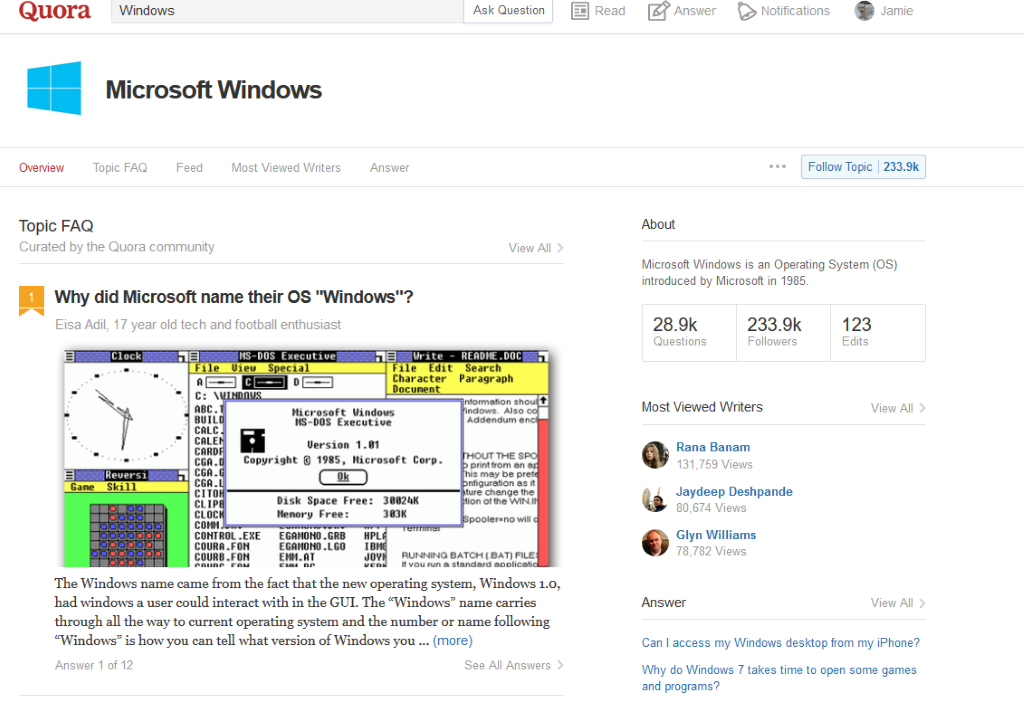Eleven things you need to know before starting a blog

If you?re considering starting a business blog, I have almost a decade?s worth of experience to help. While this post won?t tell you everything you need to do to start a successful blog, it will save you making the same mistakes I did!
So without further ado, let?s get on with the eleven things you need to know before starting a blog.
1. Plan properly
Every step you take in business has to be thought through before execution and starting a blog is no different. If you?re going to do something, do it right and this is no different.
A good blog plan will include things like your target audience, blog post types, posting schedule, subjects, categories, scope and everything down to the name of the blog. The more work you do in the planning stage, the smoother things will go.
2. Get the blog basics right
The blog basics include self-hosting as a part of your business website rather than using a free platform elsewhere. Make sure the wed design you use is responsive and will work seamlessly across mobile and desktop. That the platform you use is flexible and will allow you to schedule posts, use plugins and make your blog you own. That you can secure it enough to prevent hacking as much as possible.
Build backups and security into your blog from the outset. Hacking, malicious code and the fear of hacking will play a part in our lives for the foreseeable future. Make sure your blog and business website doesn?t fall pretty to it.
3. Check out the competition
Competition analysis is an important part of managing a blog. You need to know what your competitors are saying, how they are saying it and how you can do it better. You can also identify posts or post types they are missing and come up with a raft of improvements or stylistic changes you would make.
This forms the basis of your content strategy. Everything has been said before and there is no such thing as an original idea in the vast majority of cases. You have to take an existing idea and make it your own. Knowing how others are doing it allows you to find your own way.
4. Build a blog posting schedule
Both your readers and the search engines are creatures of habit. They like content regularly, at regular times so it?s your job to deliver it. Consider your average work day and week and build in at least three hours to write a couple of blog posts. Then consider on what day and at what time you will publish.
There is a lot of data out there on publishing schedules and what works best. Read them and use them.
Plan your posts as far ahead as you can too. Begin with some evergreen content that will draw in the initial audience. Then plan a mix of short form and long form content to acts as a hook and then the net. Factor in infographics, video and other content types if you can source or create the quality necessary.
5. Be interactive
A blog is not a monologue, it?s a conversation. You may publish the work but only when you?re having discussions about it is a blog truly alive. As well as setting time aside each week to write blog posts, you will eventually also need to make time to answer questions and interact with your readers.
Make sure you keep comments open and monitor them regularly to maximise the potential of the blog.
6. Promote your blog
We tend to suggest to our blogging clients to not worry about PPC ads or active promotion for the first few months. Part of this is to negate the possible sandboxing from Google. We don?t know if it is still real or not, so we tell the clients exactly that and let them make their own decision.
More importantly, unless you write a huge amount of content and publish it all at once, there won?t be much for the visitor to read once they arrive. There is no point paying for someone to visit you if you only have a couple of things for them to do. It is much better to build up a selection of great quality content before paying to promote your blog. Then your content is promoting itself alongside any paid promotion.
However, social media promotion, guest blogging, commenting on other blogs and other forms of self-advertising are to be encouraged at all times. They cost nothing and help you build authority.
7. Outsource where you can
Well, I would say that wouldn?t I? However, outsourcing blog management, content creation or blog writing for a few days is a great way to keep content fresh, engaging and offer more entertainment for readers. We are all different and we all have different opinions, perspectives and voices. Mixing it up on your blog is a good way to keep things interesting.
Plus, if you?re also trying to build a successful business, there will be times when you simply don?t have the time, energy or creativity to sit down for a couple of hours to write blog posts. That?s where I come in. Hire me if you need me, I am worth every penny!
8. Stay current
Things change and nowhere is that more apparent than on the internet. Regardless of your industry, you have to keep up with those changes. My own industry has changed enormously over the past five years and I have to keep up to stay competitive and to be seen as competent. Overtaking change to become a thought leader is even harder, yet that?s what every blog writer should aspire to become.
The past few years has seen the rise of the video, of the infographic, of long form content and more. It has seen the fall of MySpace, the reduction of our tolerance for poor quality content and for intrusive advertising. If you want to stay popular, you have to stay current.
9. Forget SEO
Search Engine Optimisation is still vital for any successful blog but when writing blog posts and other content, write only for your audience. The search engines are now much more intelligent that before and use a wide range of measures to rank your site. Keyword terms are only one of many of them. Writing for ranking instead of reading is a common mistake of many new bloggers and should be avoided at all costs!
If you can, of course it?s preferable to include keyword terms into your blog posts, but only if you can do it in context and almost invisibly. It?s something I had to work long and hard to be able to do but it works well when you can do it.
10. Reach out
The internet is more than just a collection of interconnected networks, it is a community. Playing an active role in that community is an important part of being a blogger. Once you have launched and have refined your blog to the point that you are completely happy with it, it?s time to reach out.
Contact other bloggers within your industry or within complementing industries. Make friends, comment in their posts and make connections. It isn?t all about getting backlinks as they aren?t worth very much anymore. It?s about making real connections with real people and building your own networks.
11. Do it properly, do it well, or don?t do it
A blog is an online extension of your business and personality. Therefore everything you say and do on your blog reflects on both of you. Bear that in mind every time you write web content, publish a blog post, comment on someone else?s post or interact with someone online.
A blog is for life, not for Christmas. Imagine how poorly written blog posts will reflect on your brand. How will half formed ideas written haphazardly reflect on your business? How would rude replies to negative comments or sarcastic remarks to questions posed by your readers reflect on your brand? All these things will have an impact and it pays to remember that.
If you want a blog but don?t have the time to do it yourself, Coastal Content can do it for you. Contact us today to learn more!



